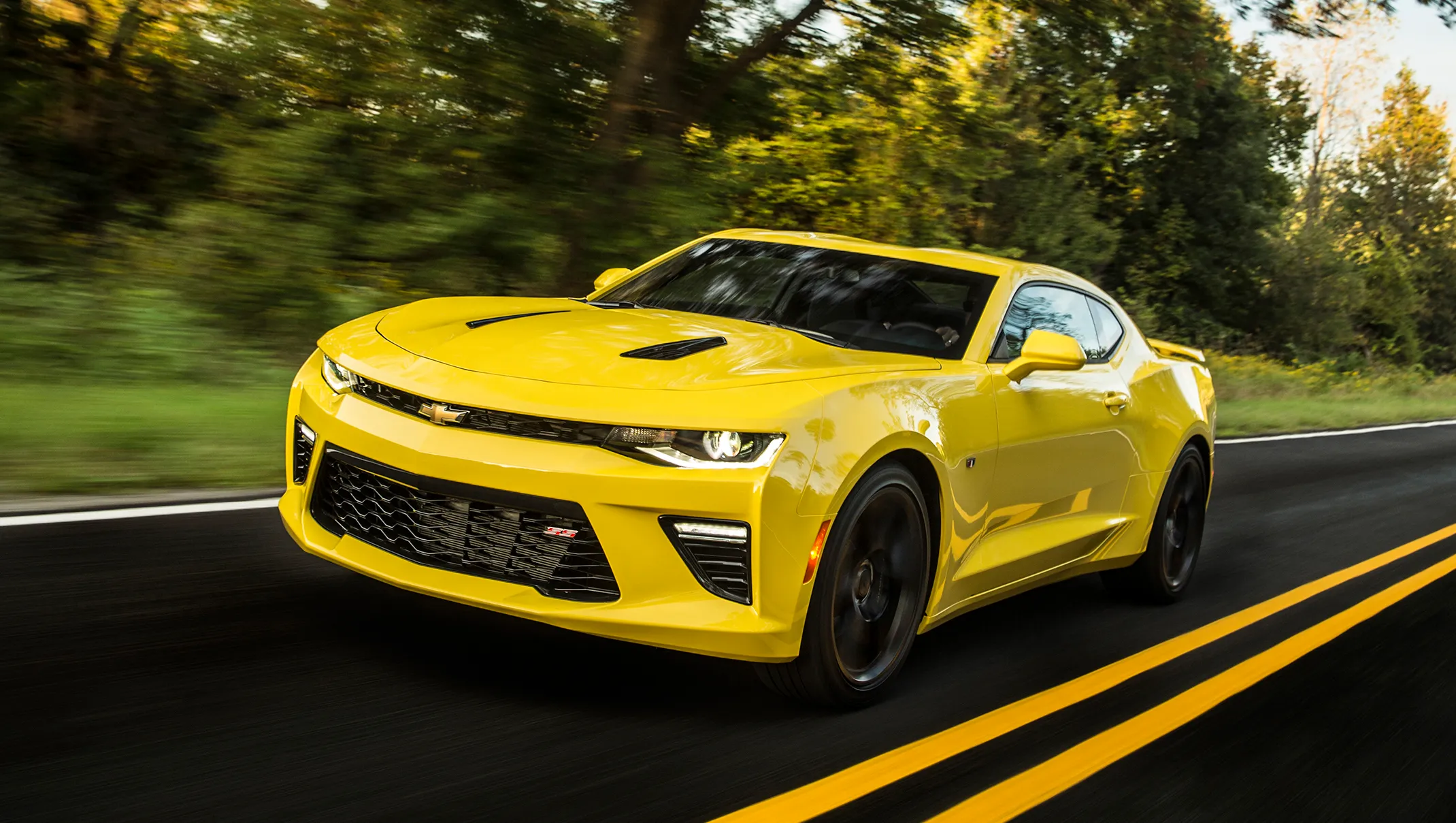When it comes to vehicle ownership, understanding trade-in value is crucial for making smart financial decisions. Chevrolet, as one of America’s most popular automotive brands, offers a diverse lineup ranging from sports cars to heavy-duty trucks, each with vastly different depreciation patterns.
While some Chevrolet models maintain exceptional resale value and command strong trade-in prices, others unfortunately become financial burdens that dealers often overlook or undervalue significantly.
The automotive market has evolved dramatically in recent years, with factors like supply chain disruptions, changing consumer preferences, and the shift toward electrification dramatically impacting which vehicles hold their value.
Chevrolet ranked consistently in the middle of all brands we reviewed, with the brand being supported by strong performances from certain models while being dragged down by poor showings from others, particularly in the SUV segment.
Understanding which Chevrolet models excel in trade-in scenarios versus those that struggle can save owners thousands of dollars and help inform better purchasing decisions.
The Chevrolet Corvette (coupe) has the best resale value among Chevrolet models, which retains 74.5% of its value after the first 5 years, demonstrating the wide spectrum of value retention within the brand’s lineup.
Dealers actively seek certain Chevrolet models because they know these vehicles will move quickly off their lots, translating to better trade-in offers for owners.
The models with poor resale value often sit unsold for extended periods, making dealers reluctant to offer competitive trade-in prices.
This guide examines ten Chevrolet models, five that dealers eagerly accept and five they often ignore, providing insights into depreciation patterns, market demand, and the underlying factors that influence trade-in values.
Whether you’re considering a new Chevrolet purchase or preparing to trade in your current model, this information will help you make more informed financial decisions.
5 Chevrolets That Hold Value at Trade-In
These desirable vehicles maintain exceptional resale values through proven reliability, strong market demand, and timeless design appeal that creates consistent buyer interest among both dealers and private purchasers seeking dependable used vehicles.
Their solid reputation incorporates excellent build quality, proven powertrains, and practical features that resist obsolescence while maintaining functionality and appearance that appeals to value-conscious buyers in competitive used car markets.
The combination of strong brand recognition, proven durability, and broad market appeal creates ownership experiences that protect investment value while delivering reliable transportation throughout extended ownership periods.
From reliable pickup trucks with consistent demand to proven SUVs with excellent reputation, these vehicles demonstrate Chevrolet’s ability to create automobiles that retain financial value through superior engineering and market positioning that prioritizes long-term owner satisfaction over short-term sales volume, delivering trade-in values that reward owners with strong return on investment.
1. Chevrolet Corvette
The Chevrolet Corvette stands as the undisputed champion of value retention within Chevrolet’s lineup, representing not just a vehicle but an American automotive icon that consistently defies typical depreciation curves.
The Chevrolet Corvette (coupe) has the best resale value among Chevrolet models, which retains 74.5% of its value after the first 5 years, making it one of the most financially sound sports car investments available in today’s market.
The Corvette’s exceptional trade-in value stems from multiple converging factors that create sustained demand. Its legendary status as America’s sports car ensures a dedicated enthusiast base willing to pay premium prices for both new and used examples.
The vehicle’s relatively limited production numbers, compared to mainstream Chevrolet models, create natural scarcity that supports higher resale values.
Additionally, the Corvette’s continuous evolution and technological advancement mean that even older generations remain desirable, as each represents a specific era of American performance engineering.

Dealers actively compete for Corvette trade-ins because these vehicles typically spend minimal time on their lots. The sports car market has a passionate, knowledgeable buyer base that understands the vehicle’s value proposition and is willing to pay accordingly.
Whether it’s a base Stingray, high-performance Z06, or track-focused ZR1, Corvettes maintain strong appeal across various performance segments. The recent transition to a mid-engine configuration has actually increased demand for front-engine C7 generation models, as collectors and enthusiasts recognize these as the end of an era.
The Corvette’s superior build quality, advanced technology, and timeless design language contribute to its longevity and continued desirability. Unlike many sports cars that feel dated after a few years, Corvettes age gracefully, with their performance capabilities remaining competitive with newer vehicles.
The strong aftermarket support and relatively reasonable maintenance costs for a supercar-performance vehicle further enhance the ownership experience and resale prospects.
For potential buyers, purchasing a Corvette represents one of the few scenarios where enjoying a high-performance sports car doesn’t necessarily mean accepting massive depreciation.
The combination of American engineering pride, accessible supercar performance, and strong resale values makes the Corvette an exceptional choice for enthusiasts who want to minimize the financial impact of their passion for performance driving.
2. Chevrolet Silverado 1500
The Chevrolet Silverado 1500 represents the backbone of America’s truck market and consistently ranks among the best vehicles for maintaining trade-in value, thanks to robust demand and proven reliability.
The Chevy Silverado 1500 is one of the best vehicles on the road for holding its value, especially over the long term, making it a smart financial choice for both work and personal use applications.
The 2023 Chevrolet Silverado 1500 is our top pick for the best model year value among the Silverado 1500 models. In 2023, you would only pay, on average, 61% of the price as new, with 83% of the vehicle’s useful life remaining.
This exceptional value retention reflects the truck’s fundamental appeal to American consumers who rely on pickup trucks for both professional and recreational activities.
The Silverado’s strong trade-in performance stems from consistent demand across multiple market segments, from construction workers needing reliable work trucks to families requiring versatile transportation.
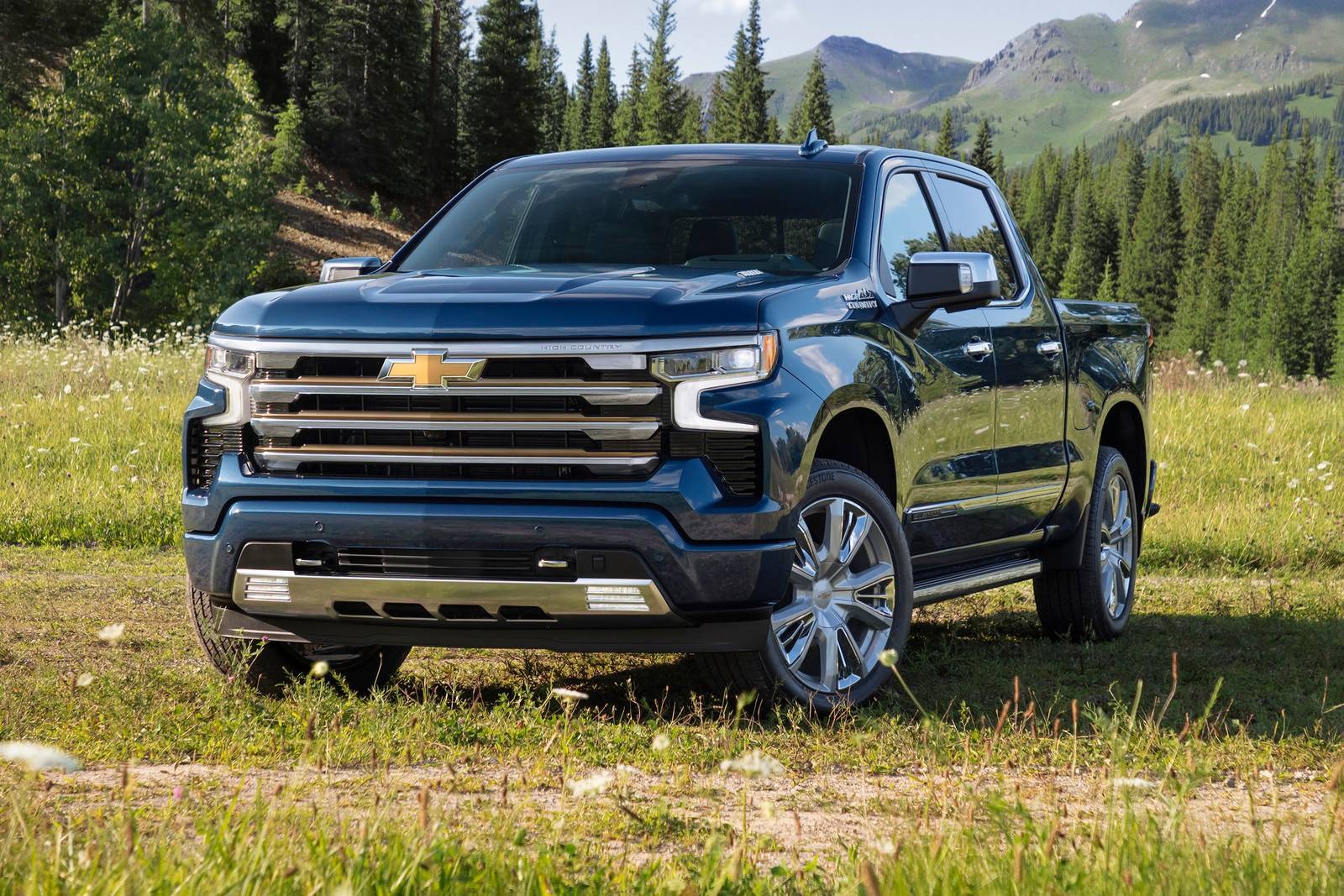
The truck market’s unique dynamics contribute significantly to the Silverado’s strong resale performance. Unlike passenger cars, trucks often serve as essential tools rather than mere transportation, creating sustained demand for used examples.
The Silverado’s reputation for durability means that high-mileage examples usually retain substantial value, particularly models equipped with proven powertrains like the 5.3L V8 engine. Commercial buyers frequently seek used Silverados, creating a robust market that supports strong trade-in values.
Chevrolet’s continuous improvement of the Silverado platform ensures that even older generations remain competitive and desirable. The truck’s advanced towing capabilities, comfortable interiors, and modern technology features appeal to a broad customer base.
The availability of various cab configurations, bed lengths, and trim levels means there’s a Silverado variant for virtually every truck buyer’s needs, supporting demand across the entire model range.
Dealers actively seek Silverado trade-ins because they understand the reliable turnover rate these vehicles represent. The combination of strong brand loyalty among truck buyers and the Silverado’s proven track record creates a self-sustaining cycle of demand.
Fleet buyers particularly value the Silverado’s reliability and resale characteristics, often replacing their trucks on regular cycles and contributing to consistent trade-in volume.
3. Chevrolet Camaro SS
The Chevrolet Camaro SS occupies a unique position in the muscle car segment, offering genuine high-performance capabilities while maintaining relatively strong trade-in values compared to other specialty performance vehicles.
The Chevrolet Camaro (coupe) ranks #3 with a resale value among Chevrolet models, demonstrating the enduring appeal of American muscle car heritage combined with modern performance technology.
The Camaro SS’s trade-in strength derives from its position as an accessible entry point into serious performance car ownership. Unlike the Corvette, which commands premium pricing, the Camaro SS offers similar thrills at a more attainable price point, creating broader market appeal.
The vehicle’s supercharged or naturally aspirated V8 engines deliver genuine muscle car performance, while modern chassis dynamics and technology features ensure contemporary driving experiences that remain competitive with newer vehicles.
Enthusiast demand drives much of the Camaro SS’s resale strength. The car represents the continuation of an iconic nameplate that holds special significance in American automotive culture.
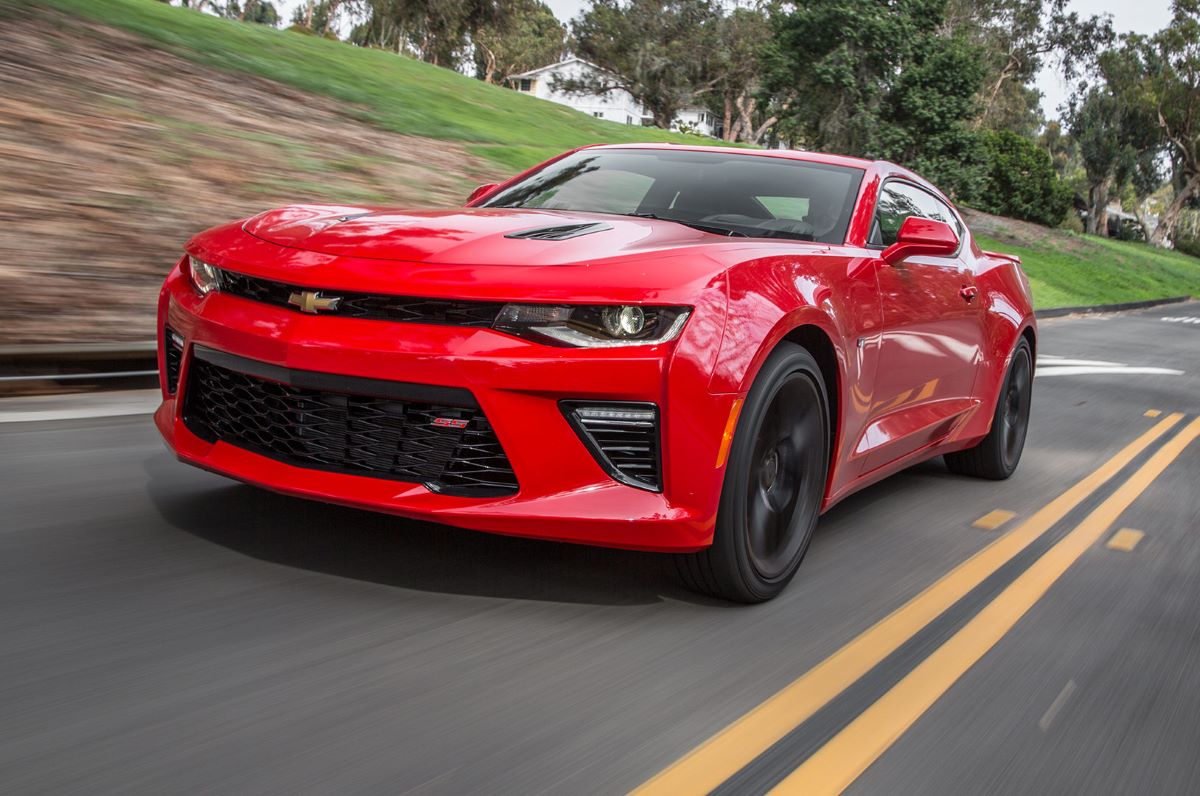
Collectors and enthusiasts recognize certain model years and configurations as particularly desirable, creating premium markets for specific variants.
The upcoming discontinuation of the Camaro has strengthened resale values, as buyers recognize these vehicles as the end of an era for traditional muscle cars.
The Camaro SS benefits from Chevrolet’s performance heritage and the extensive aftermarket support that comes with it. Owners can easily modify and personalize their vehicles, while the robust aftermarket ensures parts availability and support for years to come. This ecosystem of support contributes to the vehicle’s long-term viability and appeal to successive generations of owners.
Dealers appreciate Camaro SS trade-ins because they attract passionate buyers who often purchase quickly once they find the right example. The car’s distinctive styling, unmistakable exhaust note, and genuine performance credentials create emotional connections that translate into sales.
Unlike many sports cars that appeal to narrow demographics, the Camaro SS attracts buyers ranging from young enthusiasts to established collectors, supporting consistent demand across different market segments and contributing to strong trade-in values.
4. Chevrolet Tahoe
The Chevrolet Tahoe stands as a premium full-size SUV that consistently maintains strong trade-in values due to its combination of capability, luxury, and brand prestige in the competitive large SUV segment.
As one of the most recognizable SUVs on American roads, the Tahoe benefits from decades of reputation building and continuous refinement that keep it relevant and desirable in the used vehicle market.
The Tahoe’s trade-in strength stems primarily from its versatility and capability. Families appreciate the vehicle’s ability to seat up to nine passengers while providing substantial cargo capacity for everything from vacation trips to daily errands.
The SUV’s towing capacity, often exceeding 8,000 pounds, makes it invaluable for buyers who need to haul boats, trailers, or recreational vehicles. This combination of passenger and cargo capability creates sustained demand from buyers who specifically need full-size SUV functionality.
Commercial and fleet applications contribute significantly to the Tahoe’s strong resale performance. Law enforcement agencies, government organizations, and commercial fleets rely on the Tahoe’s proven durability and parts availability.
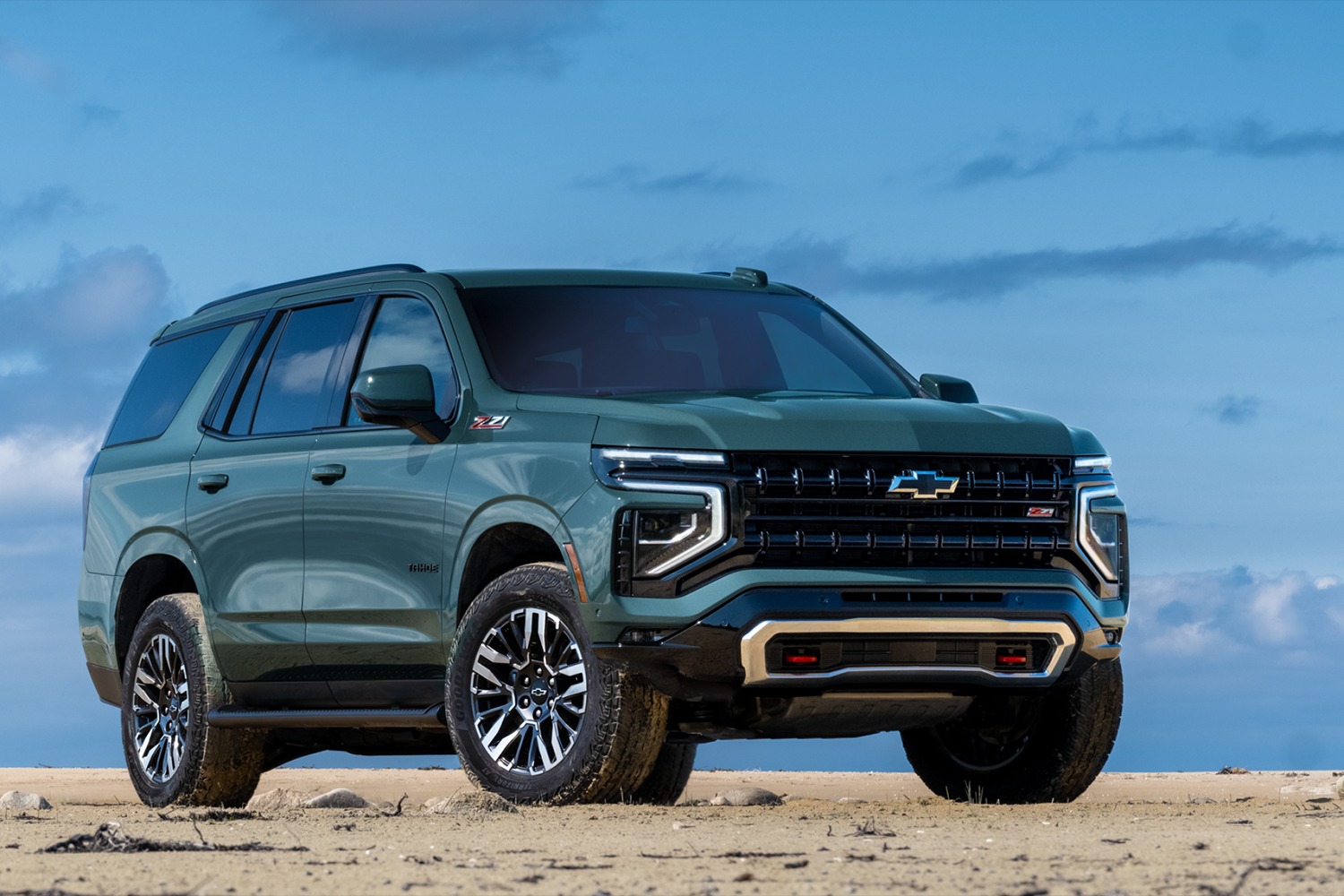
These institutional buyers often replace their vehicles on regular schedules, creating consistent trade-in volume while simultaneously demonstrating the vehicle’s reliability and longevity to potential private buyers.
The luxury factor distinguishes the Tahoe from more utilitarian competitors. Higher trim levels offer premium materials, advanced technology, and comfort features that rival luxury European SUVs at significantly lower price points.
This luxury positioning helps maintain resale values, as buyers recognize the value proposition of premium features without premium brand pricing. The Tahoe’s distinctive styling and commanding road presence also contribute to its desirability and perceived value.
Dealers actively pursue Tahoe trade-ins because they understand the SUV’s broad appeal and reliable sales patterns. The vehicle attracts buyers across multiple demographic segments, from growing families needing space to empty nesters wanting comfort and capability for recreational activities.
The Tahoe’s reputation for reliability, combined with Chevrolet’s extensive dealer network and parts availability, provides buyers with confidence in their purchase decision, supporting strong trade-in values and quick turnover for dealers.
Also Read: 5 BMWs That Survive Winters vs 5 That Can’t Handle Snow
5. Chevrolet Silverado 2500/3500 HD
The Chevrolet Silverado HD series represents the commercial-grade backbone of America’s heavy-duty truck market, with trade-in values supported by robust demand from contractors, farmers, and businesses requiring serious towing and payload capabilities.
These heavy-duty trucks occupy a specialized market segment where capability trumps luxury, creating unique value dynamics that favor proven workhorses over flashier alternatives.
Heavy-duty trucks like the Silverado 2500 and 3500 maintain strong trade-in values because they serve essential business functions rather than discretionary transportation needs.
Contractors rely on these trucks for daily operations, creating consistent replacement cycles as businesses update their fleets. The trucks’ ability to handle extreme towing loads, often exceeding 30,000 pounds, makes them indispensable for industries like construction, agriculture, and transportation services.
The Silverado HD’s Duramax diesel engine option significantly enhances trade-in value, as diesel trucks command premium prices in the used market.
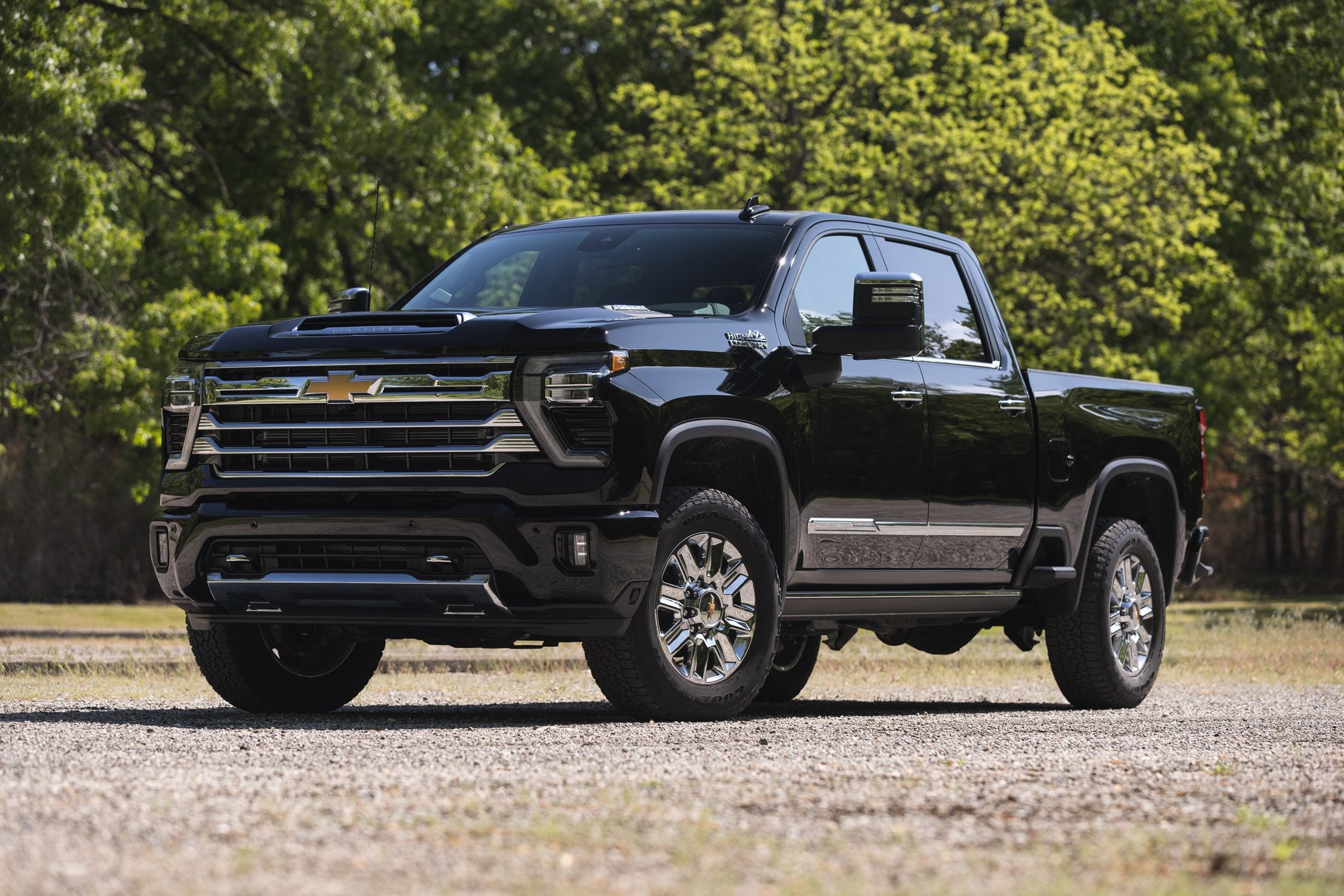
The diesel powerplant’s longevity, fuel efficiency when towing, and superior torque characteristics make it highly sought after by commercial buyers.
Well-maintained diesel Silverado HDs often retain substantial value even with high mileage, as buyers understand these trucks are built for heavy use and long service lives.
Commercial buyers often prioritize reliability and parts availability over luxury features, playing to the Silverado HD’s strengths. Chevrolet’s extensive dealer network ensures service availability across the country, crucial for businesses whose operations depend on vehicle reliability. The truck’s proven track record and familiar maintenance requirements make it a safe choice for fleet managers and individual business owners alike.
The specialized nature of the heavy-duty truck market creates natural value protection for well-maintained examples. Unlike consumer vehicles that face constant competitive pressure from newer models with additional features, heavy-duty trucks succeed based on fundamental capability metrics that change slowly over time.
This stability in market requirements helps maintain resale values for trucks that continue to meet essential performance criteria, making the Silverado HD series an excellent choice for buyers who need maximum capability while preserving their investment.
5 Chevrolets That Dealers Often Ignore
These undesirable vehicles suffer catastrophic depreciation through poor reliability reputation, limited market demand, and problematic histories that make dealers reluctant to accept trade-ins or offer competitive values for vehicles with known issues.
Their compromised market position incorporates frequent breakdowns, expensive repair patterns, and design problems that create negative buyer perception while generating inventory risks that dealers prefer to avoid in competitive used car markets.
The combination of poor reliability records, limited buyer interest, and problematic resale histories creates ownership disasters as sellers discover that Chevrolet brand recognition cannot prevent massive financial losses when fundamental vehicle quality fails to meet market expectations.
From models with known reliability issues to vehicles with poor market reception, these cars prove that Chevrolet’s brand strength varies dramatically across model lines, transforming purchases into depreciating assets that dealers actively avoid, leaving owners with vehicles worth significantly less than comparable alternatives and creating financial losses that exceed normal depreciation patterns.
1. Chevrolet Bolt EV
The Chevrolet Bolt EV represents one of the most dramatic depreciation stories in recent automotive history, with trade-in values plummeting so severely that dealers often actively avoid these vehicles.
Of all cars on this list, the Chevrolet Bolt EV might be the one to avoid no matter what. Even after just one single year, its resale value falls to 65.53%, quickly leading to it having one of the worst percentages in Chevrolet’s lineup at around 43% value once it hits the five-year mark.
The Bolt EV’s depreciation crisis stems from multiple converging factors that have created a perfect storm of value destruction. The rapidly evolving electric vehicle market means that newer EVs offer significantly improved range, charging capabilities, and technology features, making older Bolt EVs feel obsolete quickly.
Tesla’s aggressive pricing strategies and the introduction of superior competitors have further eroded demand for used Bolt EVs, leaving existing owners with vehicles that struggle to find buyers.
Battery degradation concerns plague all early electric vehicles, but the Bolt EV faces additional challenges due to well-publicized battery recall issues that required complete battery pack replacements in many vehicles.
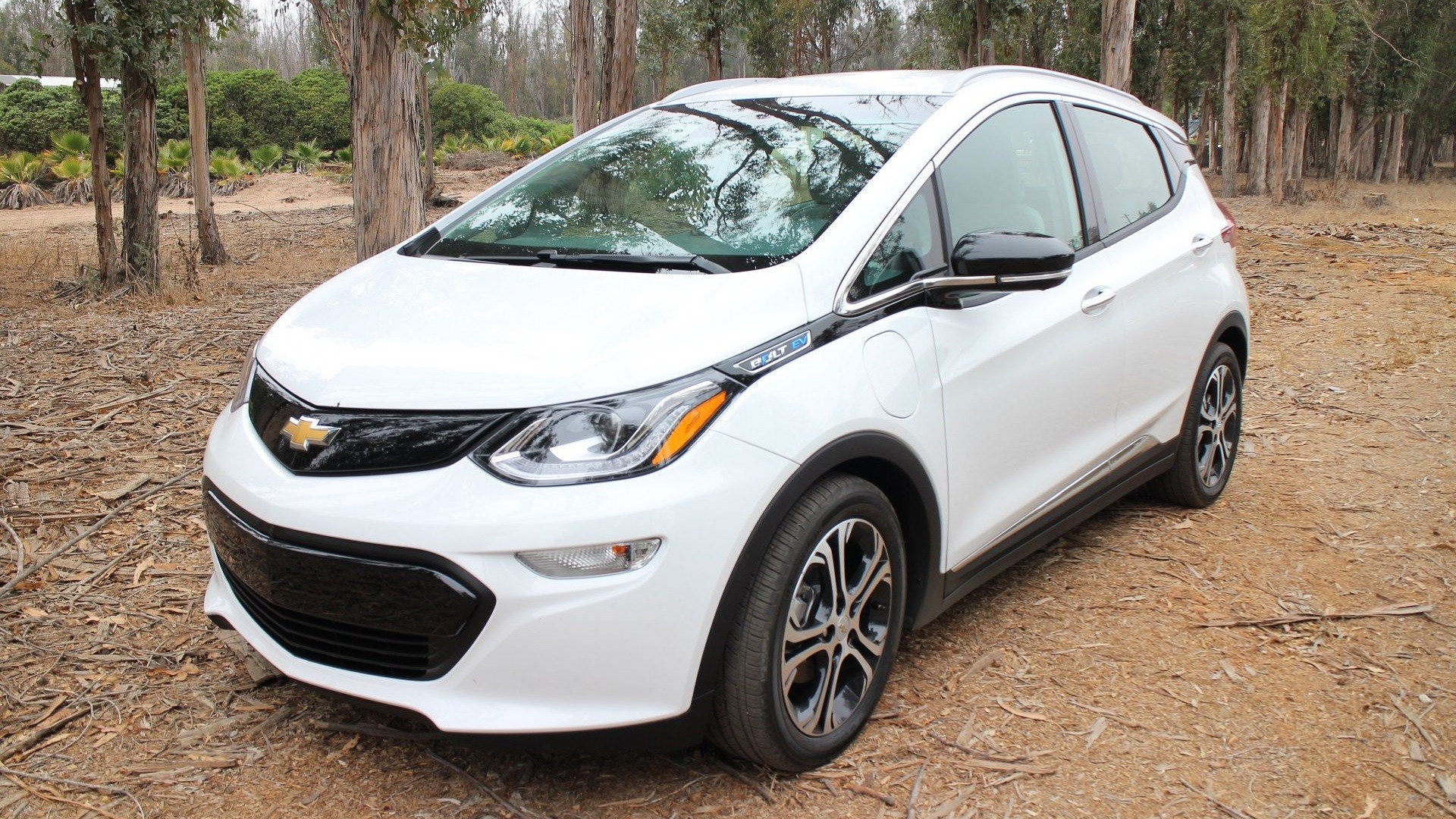
While the recall was addressed, the negative publicity permanently damaged consumer confidence in the model. Potential buyers worry about future battery replacement costs, which can exceed the vehicle’s total value, creating a logical reluctance to purchase used examples at any significant price.
The electric vehicle market’s rapid technological advancement means that three-year-old Bolt EVs offer substantially less range and slower charging compared to current alternatives.
Modern EVs feature 300+ mile ranges and ultra-fast charging capabilities, while older Bolt EVs provide approximately 200 miles of range with slower charging speeds. This technological obsolescence creates a fundamental value problem that affects all first-generation electric vehicles.
Dealers avoid Bolt EV trade-ins because these vehicles often sit on lots for extended periods, tying up capital and lot space without generating sales. The limited market for used EVs, combined with consumer preference for newer technology and longer warranties, makes Bolt EVs challenging to move.
Additionally, dealers often lack the expertise or facilities to properly evaluate and service electric vehicles, creating additional barriers to accepting these trade-ins at competitive values.
2. Chevrolet Cruze
The Chevrolet Cruze exemplifies the challenging market conditions facing compact sedans, with trade-in values severely impacted by the American market’s decisive shift toward SUVs and crossovers.
Discontinued after the 2019 model year due to poor sales performance, the Cruze now represents a dead-end investment that dealers often view unfavorably due to limited resale prospects and diminishing consumer interest.
The compact sedan segment has experienced dramatic decline as American consumers overwhelmingly prefer SUVs and crossovers over traditional cars.
This preference shift has created an oversupply of used sedans competing for a shrinking buyer base, naturally depressing trade-in values across the entire segment.
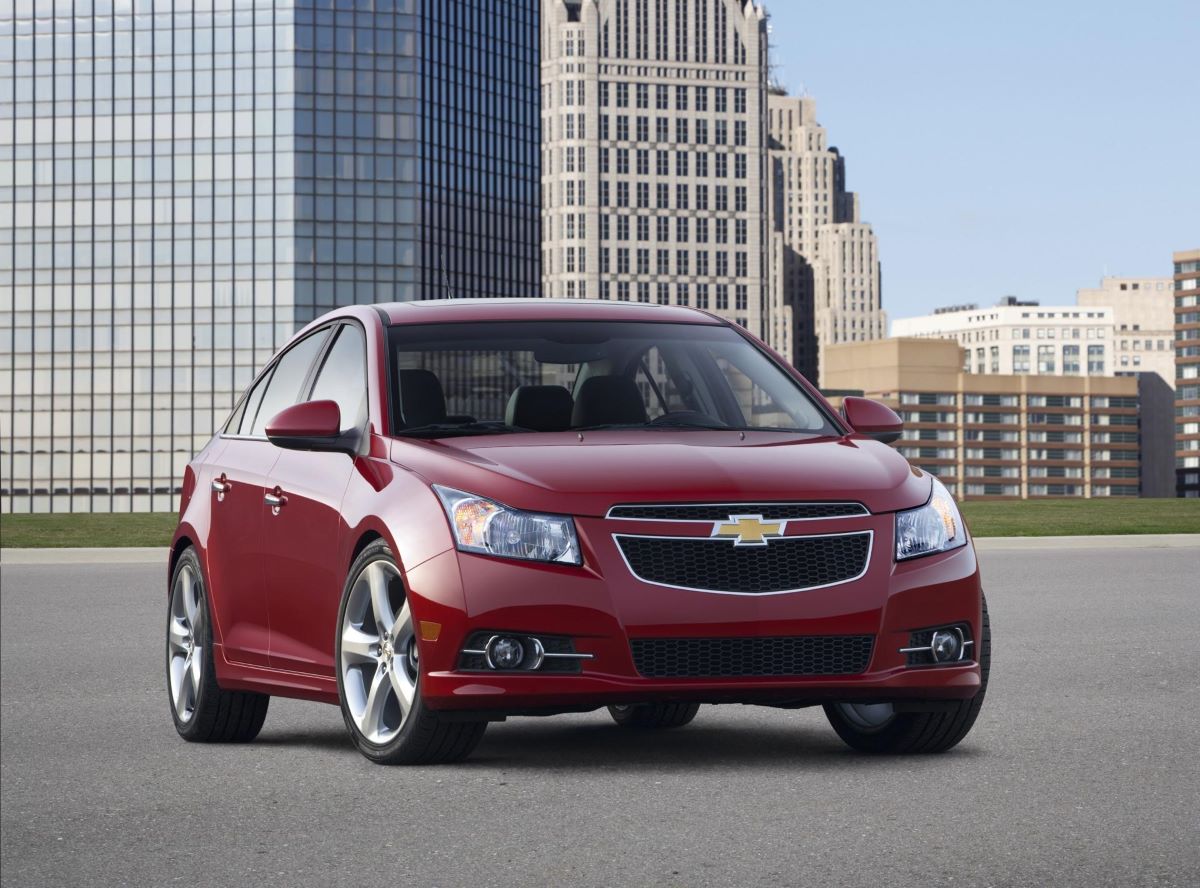
The Cruze, despite offering reasonable reliability and fuel economy, cannot overcome fundamental market dynamics that favor higher-riding vehicles with perceived versatility advantages.
Dealers increasingly avoid Cruze trade-ins because these vehicles require significant time and effort to sell, often at minimal profit margins. The abundance of similar compact sedans in the used market means dealers must compete aggressively on pricing, reducing profitability.
Additionally, the Cruze attracts primarily price-sensitive buyers who negotiate heavily and may require financing assistance, increasing transaction complexity.
The combination of limited demand, extensive competition, and challenging buyer demographics makes the Cruze an unattractive proposition for most dealers, resulting in low trade-in offers that reflect these market realities.
3. Chevrolet Sonic
The Chevrolet Sonic represents the forgotten subcompact segment, with trade-in values reflecting the harsh reality that American consumers have largely abandoned small cars in favor of compact SUVs and crossovers.
Discontinued after 2020 due to poor sales performance, the Sonic now faces the double challenge of being both unwanted and orphaned, creating severe depreciation that makes dealers reluctant to accept these vehicles as trade-ins.
The subcompact car market has virtually collapsed in North America, with consumers preferring vehicles like the Chevrolet Trax or Nissan Kicks that offer similar fuel economy with SUV styling and higher seating positions.
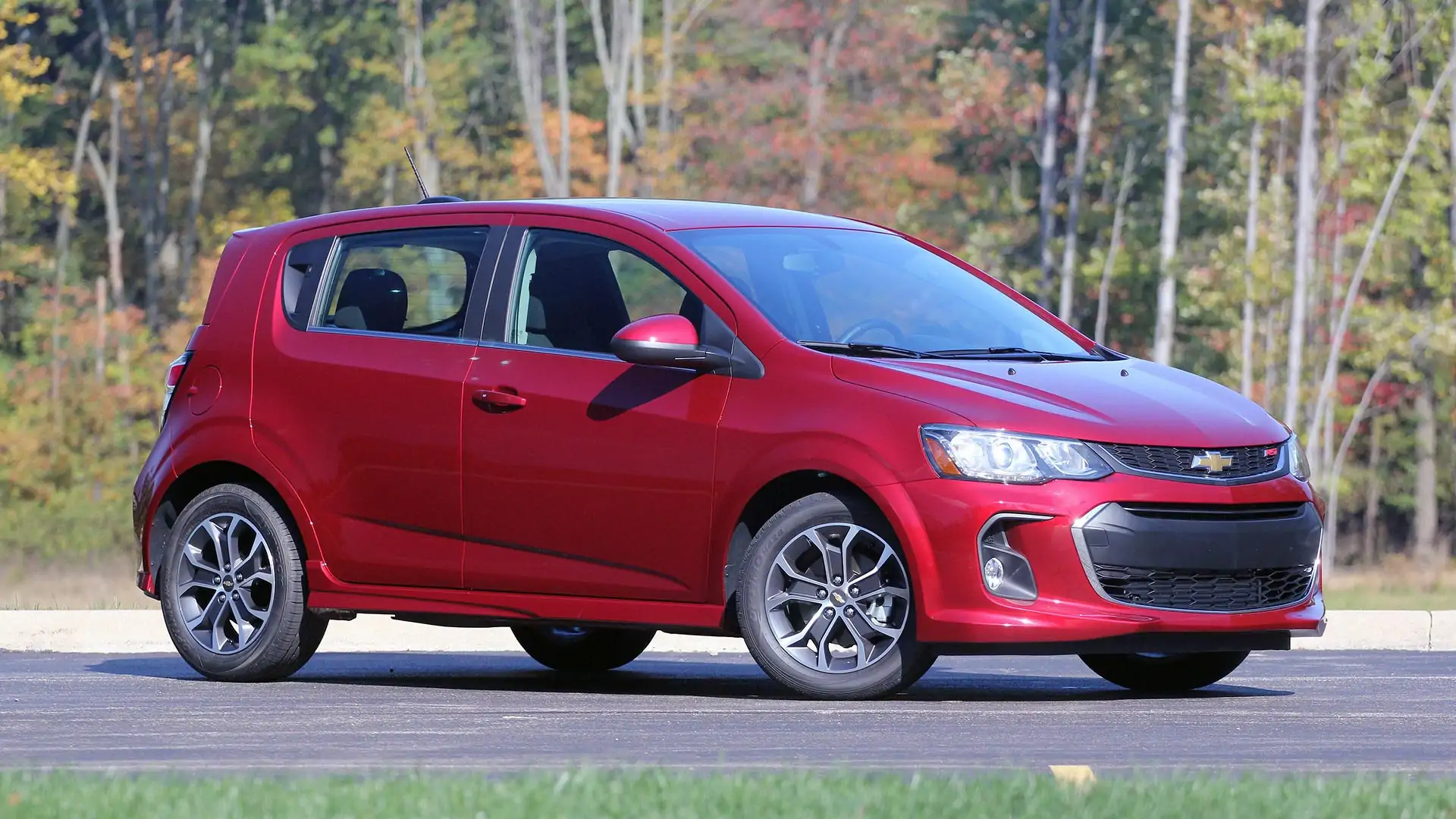
The Sonic’s low-riding sedan and hatchback configurations feel outdated in a market that increasingly values the commanding driving position and perceived safety of higher vehicles. This fundamental shift in consumer preferences has eliminated the natural buyer base for used Sonic vehicles.
Dealers actively avoid Sonic trade-ins because these vehicles represent significant challenges in terms of both selling and profitability. The limited buyer interest means Sonic models often require substantial marketing efforts and time on the lot, tying up resources without generating reasonable returns.
Additionally, the typical Sonic buyer seeks maximum value and minimal cost, creating situations where dealers struggle to achieve profitable margins while meeting customer price expectations.
The combination of these factors makes the Sonic one of the least desirable trade-ins in Chevrolet’s lineup, resulting in offers that often shock owners with their low values.
4. Chevrolet Impala
The Chevrolet Impala’s trade-in struggles reflect the broader collapse of the full-size sedan market, where even well-equipped and comfortable vehicles struggle to maintain value in a market that has decisively moved toward SUVs and crossovers.
Despite offering spacious interiors, smooth ride quality, and competitive pricing when new, the Impala now faces the harsh reality of diminished demand that severely impacts trade-in valuations.
The full-size sedan segment has experienced a particularly dramatic decline as consumers migrate to three-row SUVs for family transportation needs.
Vehicles like the Chevrolet Traverse offer similar passenger capacity with added cargo flexibility, higher seating positions, and all-wheel drive availability.
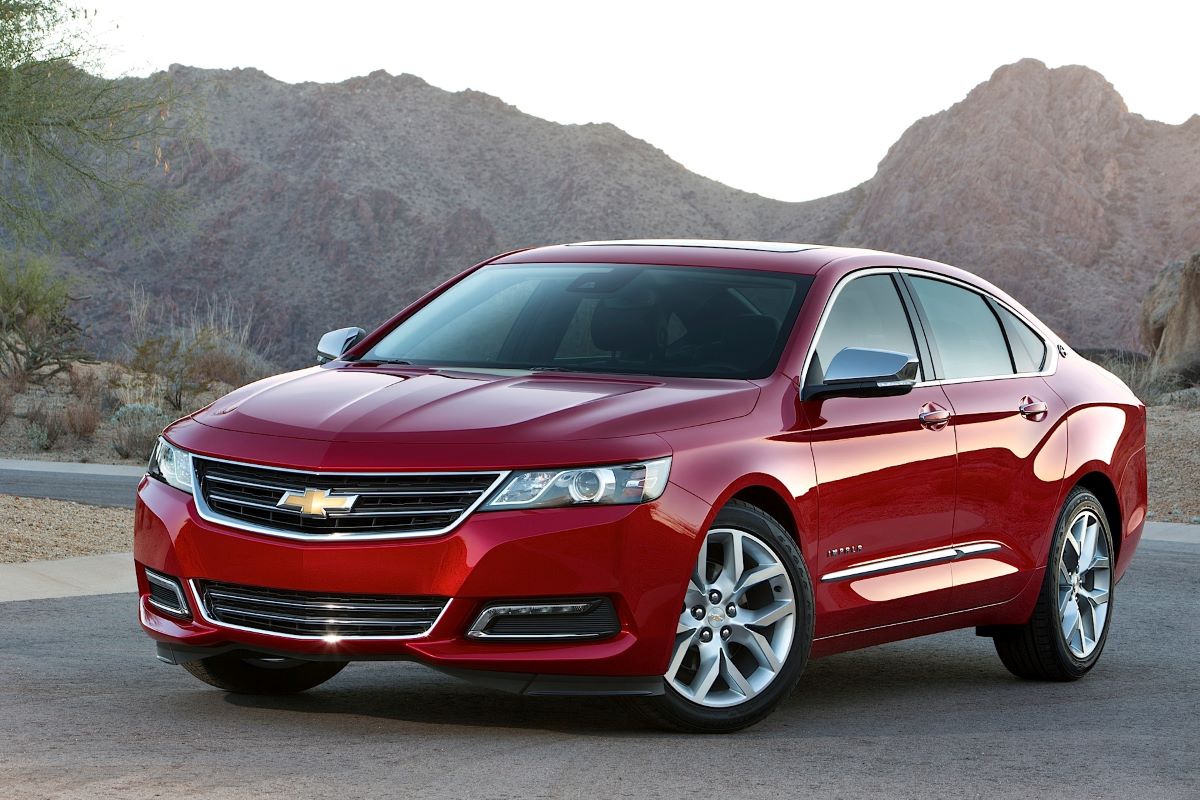
The Impala’s traditional sedan strengths, fuel economy, and comfortable highway cruising are no longer compelling enough to offset consumer preferences for SUV versatility and commanding road presence.
Dealers find Impala trade-ins challenging because the limited buyer interest requires extended sales cycles and aggressive pricing strategies. The typical Impala buyer seeks practical, comfortable transportation at reasonable prices, often requiring financing assistance and extensive negotiation.
These transaction characteristics, combined with limited profit potential, make Impala trade-ins less attractive compared to SUV alternatives that sell more quickly with better margins.
Consequently, dealers often offer conservative trade-in values that reflect these market realities, disappointing owners who expected better returns on their investment.
5. Chevrolet Malibu
The Chevrolet Malibu epitomizes the challenges facing midsize sedans in today’s SUV-dominated marketplace, with trade-in values reflecting fundamental shifts in consumer preferences that have left traditional family sedans struggling for relevance.
Despite receiving positive reviews for comfort, fuel economy, and value when new, the Malibu now confronts market dynamics that severely limit its resale appeal and trade-in desirability.
The midsize sedan segment has contracted dramatically as families increasingly choose three-row SUVs or compact crossovers over traditional cars.
Vehicles like the Chevrolet Traverse or Equinox offer perceived advantages in terms of cargo capacity, ground clearance, and all-weather capability that appeal to American families.
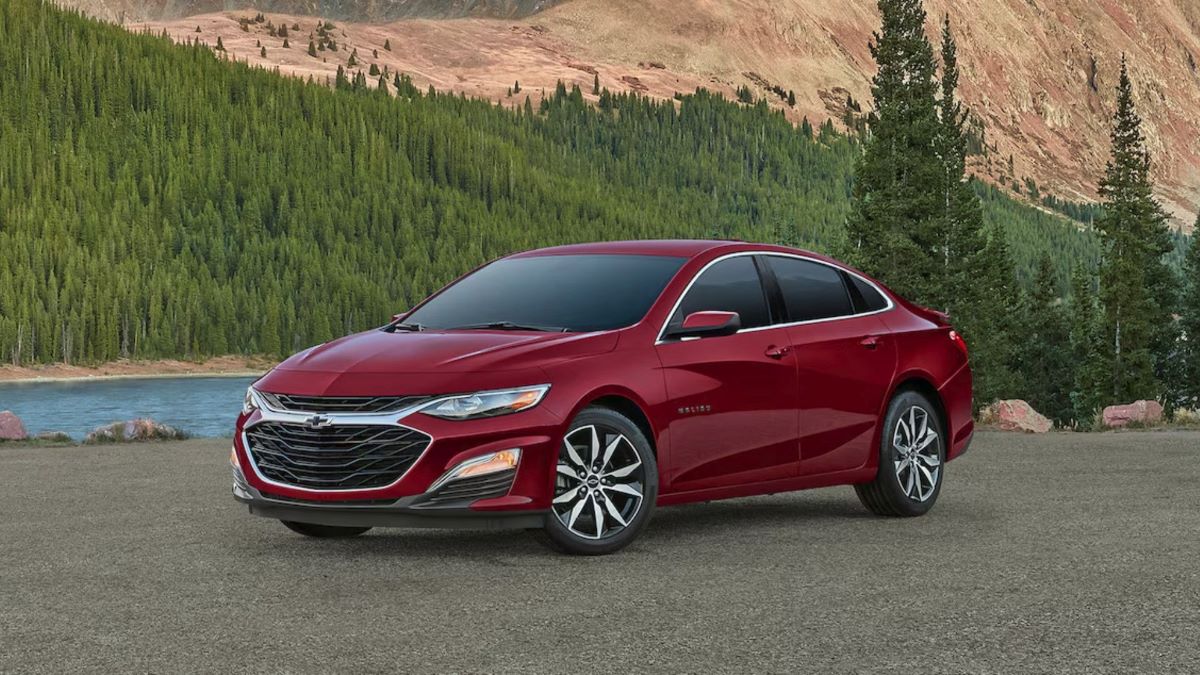
The Malibu’s sedan configuration, while offering excellent fuel economy and comfortable highway driving, cannot overcome consumer preferences for higher seating positions and versatile cargo arrangements.
Dealers increasingly view Malibu trade-ins unfavorably due to extended sales cycles and limited profit potential. The combination of abundant inventory, limited buyer interest, and competitive pricing pressure from more desirable alternatives creates challenging sales environments for Malibu models.
Additionally, the typical Malibu buyer seeks maximum value and often requires financing assistance, further complicating transactions and reducing profitability.
These factors combine to make Malibu trade-ins less attractive to dealers, resulting in conservative valuations that reflect current market realities rather than the vehicle’s intrinsic qualities or original purchase price.
Also Read: 5 GMCs That Rarely Need Suspension Work vs 5 That Constantly Fail

